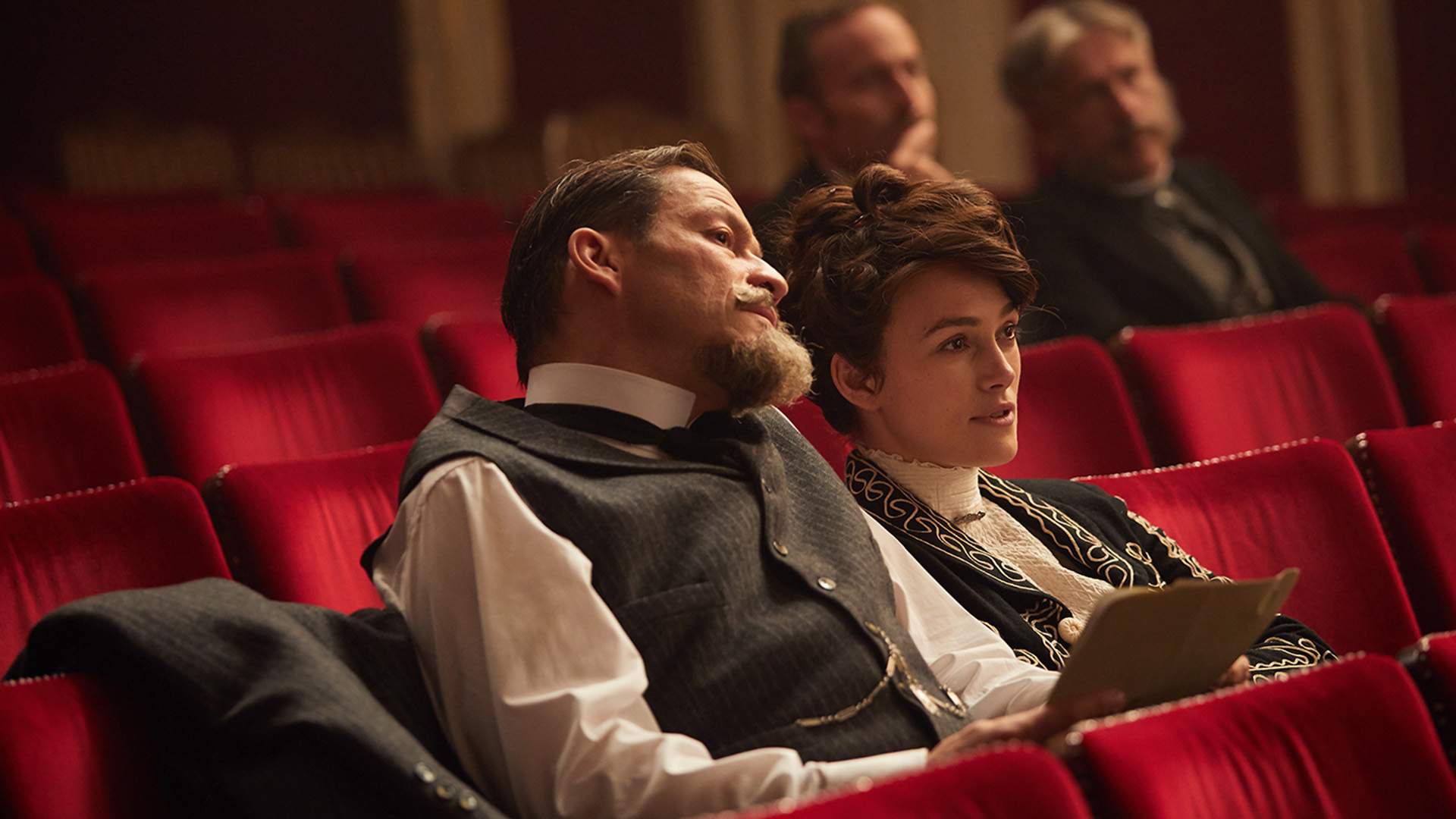Colette
Keira Knightley shines in this spirited film about one of literature's great female figures.
Overview
An author who paid others to pen his books. A flagrant womaniser and gambler. Someone who'd lose his last franc rather than live within his means. Obsessed with keeping up appearances in Parisian artistic circles, Henry Gauthier-Villars (Dominic West) — or Willy, as he preferred to be called — was many things. He's certainly the least interesting part of a story that shouldn't be about him, but the real-life figure's actions guaranteed otherwise. Marrying Sidonie-Gabrielle Colette (Keira Knightley) when she was 20, and putting her to work when he was desperate for ghostwriters, he claimed her autobiographical Claudine novels as his own. He also refused to give her any credit despite years of success — and even went as far as locking Colette in a room for hours when he wanted her to increase her literary output.
While it might seem awkward to start a review of Colette's biopic by thrusting her first husband to the fore, that was her married life with Willy in a nutshell. There's no doubting that they loved each other, at least initially, however his sense of importance cast a long shadow. The conventions of the era didn't help; it was difficult for women to be taken seriously in the late 18th and early 19th centuries, and impossible for Colette to get her books published under her own name. But hers isn't a tale of a talent simply finding her calling against the odds. Rather, as handsomely directed by Wash Westmoreland, it's one of a woman breaking free of a man's control, society's expectations and gender-based constraints. More than that, it's still devastatingly timely.
Co-scripted by Westmoreland along with his Still Alice co-director Richard Glatzer and Disobedience screenwriter Rebecca Lenkiewicz, there's a wily air about Colette from the outset. It's evident when Colette is glimpsed rushing through her family's modest Burgundy estate for a secret, lusty rendezvous with Willy. It's apparent, too, when she discovers her husband's philandering ways, and demands that she's no longer ignored and overlooked. Indeed, every time that Colette is pushed aside, she fights back. Whether she's dismissed for her country upbringing, left stranded at home while Willy goes out on the town, or threatened with scandal when she enjoys relationships with women, she rallies against the limitations placed upon her. Earning recognition for her own work might be her toughest hurdle — even more so than the response to her move into acting — but Colette was adept at bursting through boundaries.
Often considered restrained or aloof in period dramas such as The Duchess and A Dangerous Method, Knightley frequently uses those traits to her advantage in Colette. Her protagonist isn't distant, but she does boast a sense of steeliness — one that, in another tale, might've been mistaken for detachment. That said, it's when the actor subverts expectations that she turns in some of her most memorable work in recent years, selling her character's full wit, charm and impact. Though never lacking in self-assurance, Colette proves as spontaneous and spirited as she does determined and resolute. She's someone who's always comfortable in her own skin, even when she's told that she shouldn't be, as is continually made plain in Knightley's lively and lived-in central performance.
In a movie about a woman blazing brightly, it should come as no surprise that its star is the cast's standout. West's take on Willy is purposefully and convincingly grating, while Eleanor Tomlinson (Jack the Giant Slayer) and Denise Gough (Juliet, Naked), playing Colette's lovers, are barely given room to flesh out their parts. Still, they each add detail to a film that's never just celebratory. In chronicling the formative years of one of the greatest female literary figures of her time (and of all time), Westmoreland's biographical picture compellingly delves into the world that made its subject who she was. Domineering men, gossipy parties, the superficial pleasures of ornate wallpaper and costuming — to understand why Colette was most at home in her family garden, or pouring her life onto the page, or breaking fashion taboos by wearing a suit, is to first understand everything that the iconic author was told to be, yet chose to ignore.





